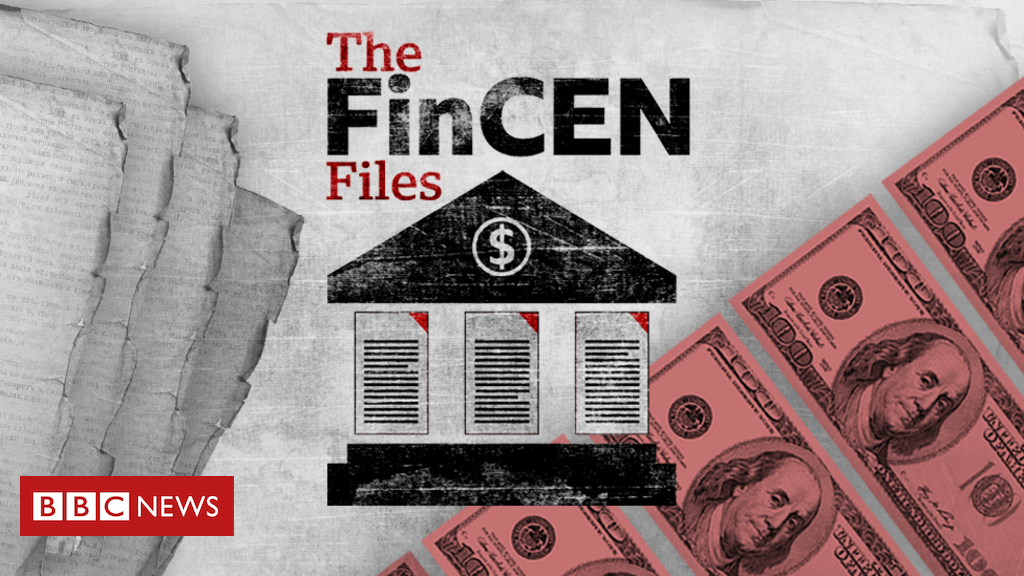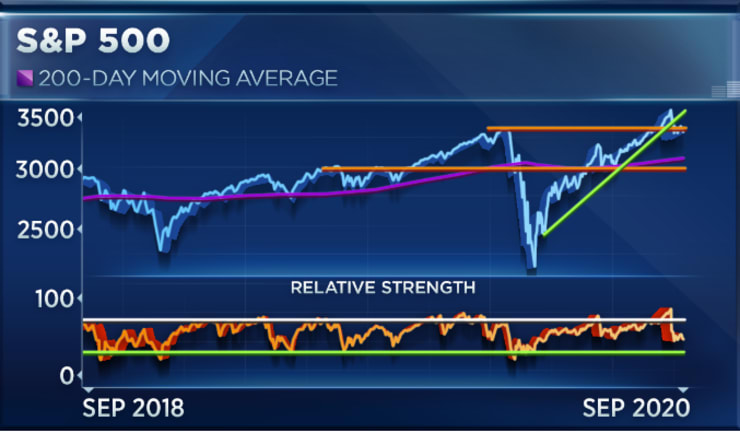FinCen Leak Accelerates September Selloff in Global Stock Markets
Disclosure: We are reader-supported. If you purchase from a link on our site, we may earn a commission. Learn more

This past week saw a September sell off intensify across global and domestic stock exchanges in markets around the world. On Monday it worsened as banking shares plunged in the light of a leaked report from the U.S. based FinCen that detailed $2 trillion in suspicious transactions aided by the world's leading major banks and lenders. These incrementing documents that the International Consortium of Investigative Journalists and Buzzfeed obtained are replete with SAR's (Suspicious Activity Reports) that have been lodged with the Treasury Department's Financial Crimes Enforcement Network (FinCen) from 1999 to 2017.
Are All of the World's Most Important Mega Banks Guilty As Charged?
According to these documents that have been leaked now, many of the most important global financial institutions from Great Britain, the U.S., Germany, and France are all in trouble. This includes chief offender Deutsche Bank from Germany; HSBC, Standard Chartered, and Barclays from Britain; JPMorgan Chase and BNY Mellon in the United States; and Societe Generale in France. So far all of these banks have defended themselves as not guilty of any conscious malfeasance, pointing to their higher budgets devoted to compliance systems.
Director Rachel Woolley of Fenergo's financial crime division warned that these leaked FinCen files reveal a:
“Systemic failure across the entire financial system and industry… Fines are on the up, over $40 billion since the financial crisis, but is this really a deterrent to the financial institutions that facilitate money laundering? In comparison to the trillions of dollars that illegally move around, these look like a simple cost of doing business. The days of hiding behind complexity and paper pushing are gone, the entire industry needs to collaborate more effectively in order to adhere to policy and prevent crime from entering the financial system.”
Woolley is recommending that the financial industry changes its concentration from “technical” compliance to “effective” compliance.
The Institute for International Finance Says Unscrupulous Mega Banking Activities Threaten Society At Large
On Sunday, the IIF Institute for International Finance commented on the leaked Suspicious Activities Reports document with a call for global policymakers to carry out critically needed reforms for battling financial crime. According to the IIF CEO and President Tim Adams, such financial crime:
“Poses grave threats to society as a whole. The findings of today's reports once again emphasize the need to pursue intelligence-led changes for financial crime risk management – driven by meaningful improvements to public-private sector cooperation and cross-border information sharing, coupled with the use of technology – to enhance the global anti-financial crime framework.”
Needless to say, equity investors in the important banking and financial sector did not like the sound of this.
More Potentially Imminent Mega Bank Financial Penalties Spook Equities Investors
The so-called FinCen leaks are only the most recent in a long running series of banking scandals that have rocked the world's financial system. Previous years saw the ICIJ investigate the Luanda Leaks, the Panama Papers, and 1MDB. DBRS Morningstar also considered the substantial costs of mega banks handling compliance failures after being caught and penalized, posing the question about earlier investment in financial compliance to lower costs of business. Vice President Tomasz Walkowicz of the DBRS Morningstar Financial Institutions Group shared that:
“In our opinion, establishing adequate internal controls should be a top priority for banks. Despite pressure on profitability driven by Covid-19 and low interest rates, banks must continue to invest in strengthening their operational risk controls. We are currently seeing increased regulatory scrutiny focused on banks' operational risk oversight, and we think that any repeated failures in the areas such as prevention of money laundering or terrorism financing could lead [to] significant financial penalties.”
Investors began scrambling to dump their bank stocks as the leaked report broke ahead of the international and U.S. domestic equities' markets openings. European banking stocks plunged 4.6 percent by the middle of the Monday afternoon trading session in the Stoxx 600 Banks sector while largest European bank HSBC share prices crashed to a 25 year low as the ICIJ revealed that HSBC moved vast sums of dirty money after paying its record money laundering fine.
Falling banking shares extended into the equities markets' opening in New York later on Monday. Deutsche Bank ADR shares fell 8.5 percent as JPMorgan Chase shares declined by 3.3 percent.
The Broader September Stock Market Sell Off Gathers Steam
By the close of Monday, the banking industry induced route had worsened. The DJIA Dow Jones Industrial Average had plummeted by 509.72 points to reach 27,147.70, a 1.8 percent decline. The S&P 500 also touched 3,281.06 in a 1.2 percent decline.
The Dow Jones average had been off more than 900 points earlier in the afternoon on Monday, with the S&P 500 also down by a sobering 2.7 percent earlier that day. This Monday sell off was the first instance going back to February in which the S&P 500 suffered four consecutive daily trading losses. It was the Dow's worst trading day since September 8th when it declined by 2.3 percent. As the chart below reveals, this September of 2020 has been a down month for Wall Street, in particular when you consider the Relative Strength Index:

For the month of September the S&P 500 is already off over six percent, while the Dow Jones has fallen 4.5 percent. Even the usually buoyant technology heavy Nasdaq Composite has dropped by 8.5 percent month to date. Thanks to the Dow Jones Industrial Average, the S&P 500, and the Nasdaq Composite all suffering their third consecutive weekly decline, this now signifies their longest lasting weekly drop going back to 2019.
Where Will Domestic and International Equities Markets Head Next?
Investors are scratching their heads wondering where the markets will head from here. CEO Marc Chaikin of Chaikin Analytics wrote that:
“For the market to hold these levels buyers have to come into the technology sector over the next week to 10 days. Without the impetus of the call option buyers who helped propel the large-cap tech stocks to extreme valuations, it is unlikely that the subsequent rally can exceed the September peak.”
Senior Technical Research Analyst Craig Johnson of Piper Sandler also warned investors and traders that:
“If you look at the chart of the S&P 500, we broke out above the prior highs we had seen in February. Now we're starting to come back in underneath that. Technically, that's a sign of weakness, when you start seeing those breakdowns below those prior highs.”
According to this technical analysis, Johnson warned that the S&P 500 could pull back to its 200 daily moving average level near 3,100 or possibly below this, representing another over seven plus percent decline from Monday's closing levels. Johnson summarized with:
“It's going to take more downside” before you see a recovery in the S&P 500.
Unfortunately this week's news about the accelerating September sell off in both the United States' and global stock market exchanges is not good. Rising uncertainty in the stock market helps to explain why Gold makes sense in an IRA. It is not possible to control the actions of the world's most important global financial institutions and mega banks like Deutsche Bank, HSBC, and JPMorgan Chase. It is possible to consider potential measures to diversify your investment and retirement accounts. You can learn more by reading about Gold IRA pros and cons and Gold IRA allocation strategies along with Top Gold IRA companies.



 Silver
Silver Gold
Gold Platinum
Platinum Palladium
Palladium Bitcoin
Bitcoin Ethereum
Ethereum

 Gold: $2,935.49
Gold: $2,935.49
 Silver: $32.50
Silver: $32.50
 Platinum: $980.75
Platinum: $980.75
 Palladium: $973.89
Palladium: $973.89
 Bitcoin: $96,581.55
Bitcoin: $96,581.55
 Ethereum: $2,764.30
Ethereum: $2,764.30